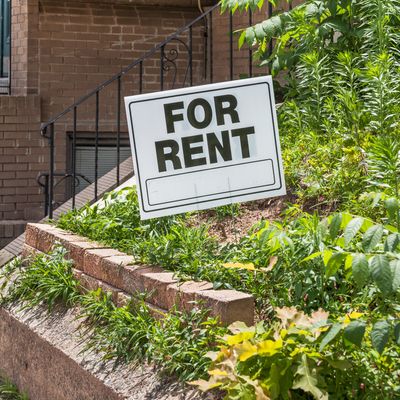
The coronavirus and subsequent lockdowns have left virtually no industry untouched. Among the many affected is the short-term-rental industry, much of which is powered by Airbnb and the similar platforms that followed its lead. Airbnb’s pitch to city governments and property owners is that it’s a way for property owners to make some extra cash off of real estate that would otherwise be unused. But in practice, Airbnbs function as unlicensed and unregulated hotels. It does not have a great reputation among fair housing advocates.
Airbnb’s critics see it as responsible for rising rents, low vacancy rates, and a catalyst for gentrification. Properties that might otherwise be available to people who want to live and work in a city, the thinking goes, are instead taken up by tourists paying a much higher nightly rate.
The coronavirus has, as you might expect, dealt a significant blow to vacationers. Government restrictions on travel and a general fear of being out in public or other people’s private spaces have led countless to cancel upcoming trips. Airbnb has waived cancellation fees for reservations booked before mid-March that were supposed to take place between then and mid-April. This has left hosts without a source of income they had previously planned on, and left them hanging for the foreseeable future.
A number of viral tweets and subsequent speculation have posited that the coronavirus has caused a spike in long-term rentals. The theory is that as the short-term market drops off a cliff, those properties are being taken off of platforms like Airbnb and moved onto long-term platforms like Zillow or Craigslist. (One of them comes from repeat fabulist Shane Morris, so take it with a big grain of salt.)
In a statement, Airbnb said, “Today there are as many listings available on the Airbnb platform for prospective guests as there were prior to the pandemic. Real estate economists have confirmed, there is no surge of short-term rental listings to the long-term rental market.”
Speaking to Salon, Zillow economist Jeff Tucker said it was too early to understand the full effect of the virus on the real-estate market. “If we saw a significant surge in short-term listings being converted back to long-term listings on the rental market … that would put downward pressure on rents if that were happening,” he told the site. “But we haven’t seen any evidence of that happening yet.” (An Airbnb spokesperson referred me to Tucker’s statement.)
Airbnb supplied some recent statistics based on their markets in Nashville, New Orleans, Honolulu and Savannah (the same cities referenced in Morris’s tweet). A cross-referenced sample found that only 2.8 percent of short-term rentals taken off of Airbnb had made their way onto the long-term rental market in those cities as of this week. In the month between February 22 and March 23, short-term supply in New Orleans and Savannah increased marginally, while supply in Nashville and Honolulu held steady.
McGill University professor David Wachsmuth, who has spent years studying the effects of short-term-rental platforms, also cautioned that it was early, but countered that there were already clear signs of the coronavirus’s ripple effect. He described Airbnb as “cratering” right now. For the people who are renting out spare bedrooms or using the platform to supplement their primary income, this is not the end of the world. For the more aggressive speculators, who purchased condos with the intent of continually renting them out year-round, this is a disaster.
“It’s still a little early to try to back that up with rigorous data at this point, but it’s very clear from the numbers that we’re seeing, as well as from the online discussions among hosts, that these businesses have basically evaporated overnight,” Wachsmuth said. He was referencing Montreal’s recent statistics, but he added that the general trend seemed to hold for many cities around the globe.
One big indicator of Airbnb’s flipping to longer-term agreements, he said, is that there has been a noticeable uptick in furnished apartments being listed. “You don’t have to think too hard [about] what’s going on there,” he noted.
According to Wachsmuth, there is no other possible reason for the spike in furnished listings. “If you leave Airbnb aside, you would expect, theoretically, to see extremely little movement in the rental market right now, and in the housing market in general,” he said. “Nobody wants to be looking for an apartment if they don’t have to.” And yet there is apparently a growing wave of long-term rentals hitting the market. If nobody is vacating these rentals, it’s reasonable to assume that they were previously short-term rentals.
Given that it’s very early days in this crisis, it remains to be seen what the prolonged effects on the real-estate market will be. More long-term vacancies and competition in cities will presumably drive prices downward. But nobody is really interested in moving or even looking for an apartment right now, so who knows if the newly available units will move. Many cities have proposed or enacted eviction or rent freezes as the pandemic continues.
It’s also not clear how long this flip might last. The margins on short-term rentals are higher than long-term ones, and even after the crisis recedes, that principle is likely to hold. Whether long-term units flip back to short-term is the looming question. Still, the crisis is a wake-up call for people making big bets on platforms like Airbnb — those who signed 20 leases with the intent of keeping them continually booked, or those who took out large bank loans to buy condos and remodel them as “ghost hotels.”
“This is a very, very strong vindication of the idea that myself and other researchers have been putting forward for a few years now,” Wachsmuth said. “Which is that short-term rentals have had a disastrous impact on cities’ rental markets.” Whether any of the lessons gleaned from this will be taken to heart by local regulators trying to stabilize their housing markets remains yet another known unknown.





























